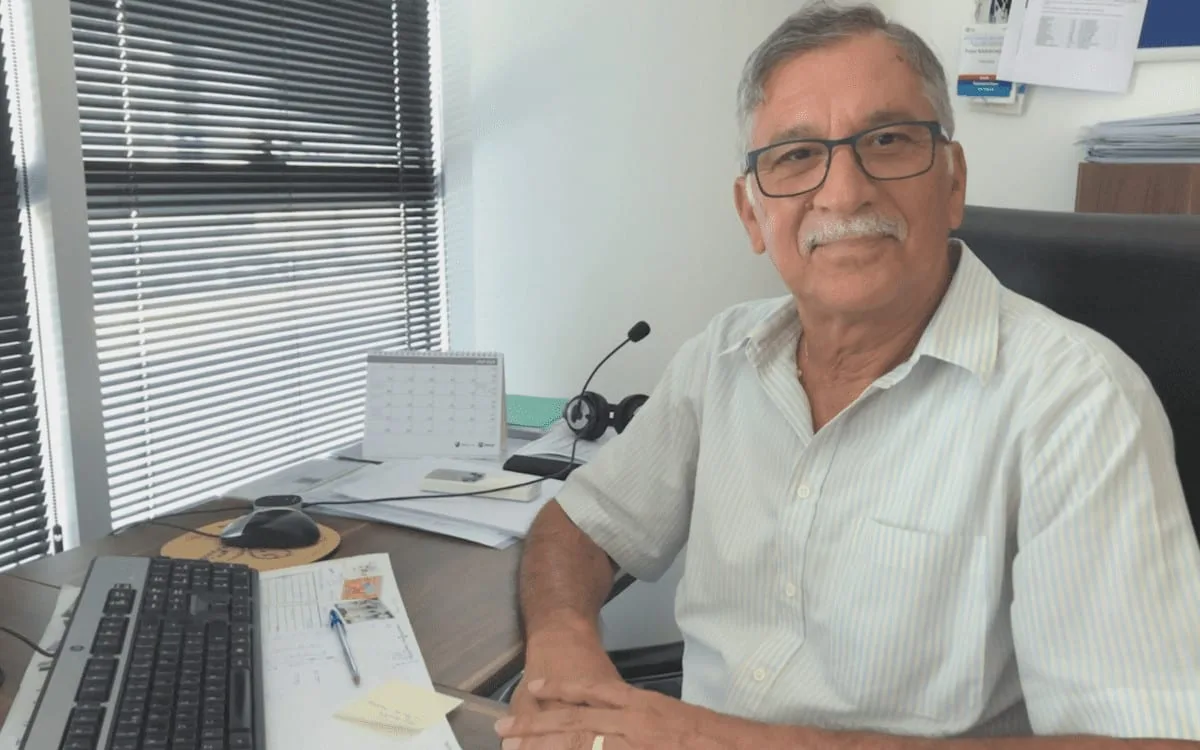by George Sycallides
Peter Karayiannis, Professor of Microbiology/Molecular Virology and Associate Dean for Faculty and Research at the Medial School, is one of the key figures and spokespersons for the Cyprus government’s Advisory Committee on Coronavirus. Since the outbreak of the virus in Cyprus, in early March 2020, Prof Karayiannis has been in the spotlight on a daily basis and has become one of the most recognised faces in the country.
Professor Karayiannis, after spending 43 years in the UK, with an international reputation for your research into hepatitis, you decided in 2013 to move back to Cyprus. What made you take this decision?
Indeed, after 43 years I decided that I needed a change and a new challenge. There were two reasons for my decision: the deteriorating health of my mother, and the invitation to work at the Medical School, which at the time was in the second year of its existence.
Did you expect the outbreak of the coronavirus, initiated in China, to become a pandemic?
At the beginning, no. The reason for this was the paucity of information coming out of China and the slow response by WHO. Also, at the time, it was not obvious how contagious the virus was. When Wuhan was placed under complete lockdown I started to worry, but I got the impression that countries in the West probably thought that this would be a problem for the Far East and not for the rest of the world. The consequences of this delay became apparent in some countries which were slow to react, or did not react at all.
How do you see this pandemic developing in the future?
I feel that without an effective protective vaccine there will always be a risk of the virus coming back in waves of different intensity. This is dependent on establishing that the antibody response will result in the production of adequate levels of virus neutralising antibodies. Alternatively, a direct acting antiviral targeting a stage in the life-cycle of the virus, and therefore specific to the virus, will greatly reduce deaths among those who develop severe symptomatology.
What is your worst fear in relation to the pandemic?
For the Health systems around the world, and in particular the poorer countries being unable to cope with the increased numbers of those requiring hospital admission, inadequate numbers of intensive-care unit beds and respirators for the severely ill. The current statistics that only half of those intubated survive, whilst the stay in intensive-care units can be long and tortuous.
In your capacity as a virologist, do you think that we have had more virus pandemics in recent times than in the past? If so what do you think the causes are?
Yes, there have been four pandemics in the 20th century all to do with the flu virus, and two in this century so far. They are all associated with respiratory viruses and of zoonotic (animal origin) transmission. Transmission through the respiratory route gives easy access to the body and may lead to faster spread as we all need to breathe. Zoonotic transmission may occur when man invades animal habitats, uses wild animals as exotic food or ventures into roosting caves which may be used by bats. This nowadays is occurring at an increased frequency in an attempt to generate new recreational interests or increase meat production by animal farming.
What can humanity do to prevent a future pandemic?
Respect natural habitats and avoid the selling of live animals, whether wild or domesticated, in crowded markets.
Do you think that we have now adapted to living with the virus, and do you trust that we will behave in a way that will protect our country?
Whether we have adapted to living with the virus will become more apparent if there is a second wave. Because of this, we keep stressing that the protective measures we have applied during the lockdown should be in use until autumn at least. Importation of the virus to the island is a real risk, which we must not forget. Unfortunately, I see that people have relaxed too much and have started behaving as if what we have experienced is all in the past. I hope that we will not have a nasty awakening.
How do you deal with your sudden popularity and the fact that you are easily recognisable wherever you go? Does it interfere with your personal life, and how is your family dealing with it?
I am not the type that will allow this to go to my head. Yes, people do recognise me and stop to talk to me. Most of them are grateful for what the Advisory Committee has done and the country as a whole has achieved. I do not find that it interferes with my personal life, and the family is not bothered at the moment.

